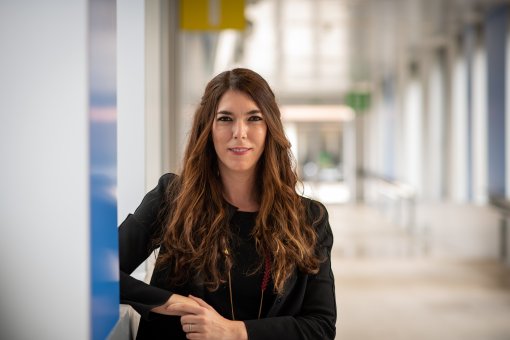Images
Contact

The business sector in southern Europe will be the main beneficiary of the results generated by DIOMED consortium.
Antonio Zorzano, researcher at the Institute for Research in Biomedicine (IRB Barcelona) and professor of Molecular Biology at the University of Barcelona, coordinates a European consortium to find new compounds for the treatment of diabetes and obesity. The project, entitled DIOMED (acronym of: Diabetes, Obesity and Medicine), is part of the EU’s SUDOE programme, aimed to foster the technological development of southern Europe. The new consortium involves two technology clusters with experience in technology transfer –the Barcelona Science Park (acronym in Catalan PCB), which hosts IRB Barcelona, and the BIOCANT Park in Portugal–, plus four groups working in basic research. The DIOMED project will last three years, until 2012, and has been awarded funds amounting to more than 800.00 Euros.
Boosting the biomedical industry in southern Europe
"The project has a clear objective to generate value by producing pre-drug compounds that can be patented for the treatment of diabetes and obesity. Later on, if these compounds are effective in diabetic animals, they will be tested in clinical trials", explains Antonio Zorzano. DIOMED aims to further the promotion of biomedicine as a producer of added value of great potential for the biomedical industry of the regions involved. "Achievement of this objective is favoured by the experience of the partners in innovation and technology transfer of results to the biotech sector", expounds Fernando Albericio, director of the PCB and an authority in combinatorial chemistry.
The most innovative feature of the project is the formation of a transnational group of organisations and complementary teams that work together on improving the development process for drugs to treat diabetes and obesity. This profile implies multidisciplinarity, involving biologists, chemists, experts in protein structure and in nano screening technologies.
Objective: anti-diabetic and anti-obesity pre-drugs
The main objective of DIOMED is to find molecules that exert a pharmacological effect on three target proteins associated with diabetes and obesity, previously identified in laboratories at IRB Barcelona and INSERM (Institut National de la Santé et de la Recherche Scientifique). The scientists will analyse a chemical library of more than one thousand two hundred molecules to identify those that affect the action of the proteins related to these diseases. Later, using combinatorial chemistry techniques, the valid compounds will be improved and their capacity will be tested in animals in vivo, mainly in mice.
In parallel to the search of chemical libraries, the consortium will obtain structural information about the target proteins. Having acquired the 3-D information by X-ray crystallography, computational systems will be applied to look for molecules that fit the structure.
"DIOMED seeks to return to society the benefits of biomedical scientific and technological capacity in south-east Europe, and achieve the scientific breakthroughs that can lead to an improvement of quality of life and can contribute to the socioeconomic growth of the regions through the development of biotech products", summarises the coordinator of the consortium.
DIOMED comprises six partners, three from Spain (IRB Barcelona, the PCB and the University of Santiago de Compostela), one from France (INSERM), and two from Portugal (the “Instituto de Biologia Molecular e Celular”, Universidade do Porto, and the BIOCANT Park).
About IRB Barcelona
The Institute for Research in Biomedicine (IRB Barcelona) pursues a society free of disease. To this end, it conducts multidisciplinary research of excellence to cure cancer and other diseases linked to ageing. It establishes technology transfer agreements with the pharmaceutical industry and major hospitals to bring research results closer to society, and organises a range of science outreach activities to engage the public in an open dialogue. IRB Barcelona is an international centre that hosts 400 researchers and more than 30 nationalities. Recognised as a Severo Ochoa Centre of Excellence since 2011, IRB Barcelona is a CERCA centre and member of the Barcelona Institute of Science and Technology (BIST).




